Bail is the conditional release of a suspect from custody in return for a quantity of money that is guaranteed in exchange for the suspect's appearance in court when it is scheduled. The person making the payment acts as the surety. Receiving bail is one of the accused's rights in a civil action; in a criminal case, it is up to the bail issuing authority's discretion. In other terms, bail is described as a financial assurance of a person's appearance at trial in exchange for the release of an arrested person.
It is a brief release from police custody with the requirement that the person being released on bail be accessible for the duration of the case's investigation. Only when the accused has been taken into custody or is waiting to be taken into custody can bail be granted. Anytime this occurs, the accused may request release from police detention by submitting a court or police station application.
Right now, bail is governed by the 1973 Code of Criminal Procedure. Although the Act does not define the word "bail" specifically, it does specify what constitutes a "bailable offence" and "a non-bailable offence" under Section 2(a). The Act's bail-related requirements are handled by Sections ...Read More
Right now, bail is governed by the 1973 Code of Criminal Procedure. Although the Act does not define the word "bail" specifically, it does specify what constitutes a "bailable offence" and "a non-bailable offence" under Section 2(a). The Act's bail-related requirements are handled by Sections 436-439.
Types of bail
Regular bail: When someone commits a cognizable offense and is arrested without a warrant, they are placed in police custody until the end of their time there, at which point they are sentenced to prison. In cases where standard bail cannot be granted, the accused has the right to be released from police custody under Sections 436 and 439 of the Code of Criminal Procedure, 1973. An accused person is released from detention on a regular bond so that he can appear in court.
Temporary bail: This bail is offered as a temporary solution for a brief period of time, either while an application is pending or while a court is considering an application for anticipatory or regular bail. However, if it expires before the accused has been granted anticipatory or regular bail and he fails to pay the amount required to continue the bail, he forfeits his right to freedom and will be placed under police custody. Interim bail is always subject to conditions and may be renewed.
Anticipatory bail: "Anticipatory bail" is a self-explanatory phrase. Someone who anticipates being arrested by the police for an offense for which there is no possibility of bail is given this kind of bail. This subject has gained significant importance in recent years because powerful individuals and corporate rivals occasionally attempt to frame their adversaries in false accusations. This kind of advanced bail is outlined in Code Section 438. A person who has been given anticipatory bail is not subject to arrest by law enforcement.
Court’s view:
In the case of Sushila Aggarwal v. State of NCT of Delhi, Justice Bhatt made a preeminent statement, arguing that because Parliament had not deemed it appropriate to restrict citizens' rights and the ability of courts to grant anticipatory bail, it would not be in the public interest to do so. The fundamental and unconstrained rights of citizens. The bench made an effort to connect anticipatory bail with the fundamental liberties that India's constitution guarantees.
In Gurbaksh Singh Sibbia v. State of Punjab, The petitioner in this case, who was the then-Minister of Punjab's Irrigation and Power, was denied anticipatory release due to suspicions of corruption. This clause should only be used in exceptional circumstances, the court said. In order to protect the public interest, they said that the court shouldn't exercise discretion in cases of serious economic crimes including brazen corruption. The five-judge panel of the Supreme Court later rejected this judgment on appeal because of past precedents and judicial interpretation.
In Siddharam Mhetre v. State of Maharashtra, Based on the precedent set by the Sibbia case, the Supreme Court in this instance overruled the High Court's decision and granted the accused anticipatory bail. Additionally, they said that the clause could be approved if the defendant is willing to participate with the investigation and has no intention of eluding justice before the trial is finished. Because both decisions grant the accused the right to life, this judgment served as precedent in Bhadresh Seth v. State of Gujarat.
In the case of Gudikanti Narasimhulu v. Public Prosecutor, High Court of A.P., The provision of bail, according to the Supreme Court of India's ruling in this case, clearly links to and sustains the ideal of liberty and freedom inherent in Article 21 of the Indian Constitution.
Supreme Court is the last hope for bail because it is the highest court of India. No further appeal can be made from its decision.
Therefore, granting bail is a right as a defender of life and liberty that enables the alleged offender to be free temporarily while protecting him or her from shady and venal false accusations. Bail is an honorable idea in criminal law. The accused may be given bail in cases of non-bailable offenses, but only under specified conditions. According to the idea of bail, the accused cannot be considered guilty unless that guilt is proven. Bail also brings the lovely idea of individual liberty into the mix. The clauses are present to give effect to the reference to personal liberty in the Indian Constitution.
How Shark of Law can help you:
Trustworthy and confidential - We guarantee that all of your personal information and documents will be kept secret. We never reveal this information to anyone.
Expert Advice - The registration procedure necessitates the assistance of specialists who can advise you in India.
Lawyers of the highest caliber – Shark of law can assist you in selecting the finest tax attorneys to assist you. We work with a variety of associates; you may select a lawyer based on their practice area, experience, and user rating.
Shark Of Law provides a range of legal services, including online resources and free legal advice. You can talk to a lawyer as soon as you have Lila. Ask a legal question for advice.
Consult with experienced Lawyers across expert areas



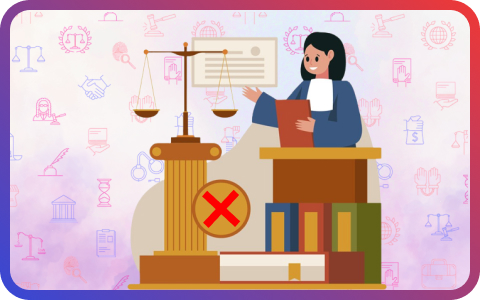
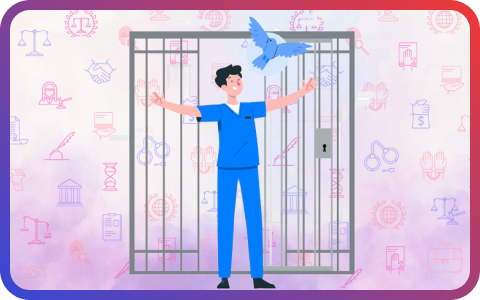
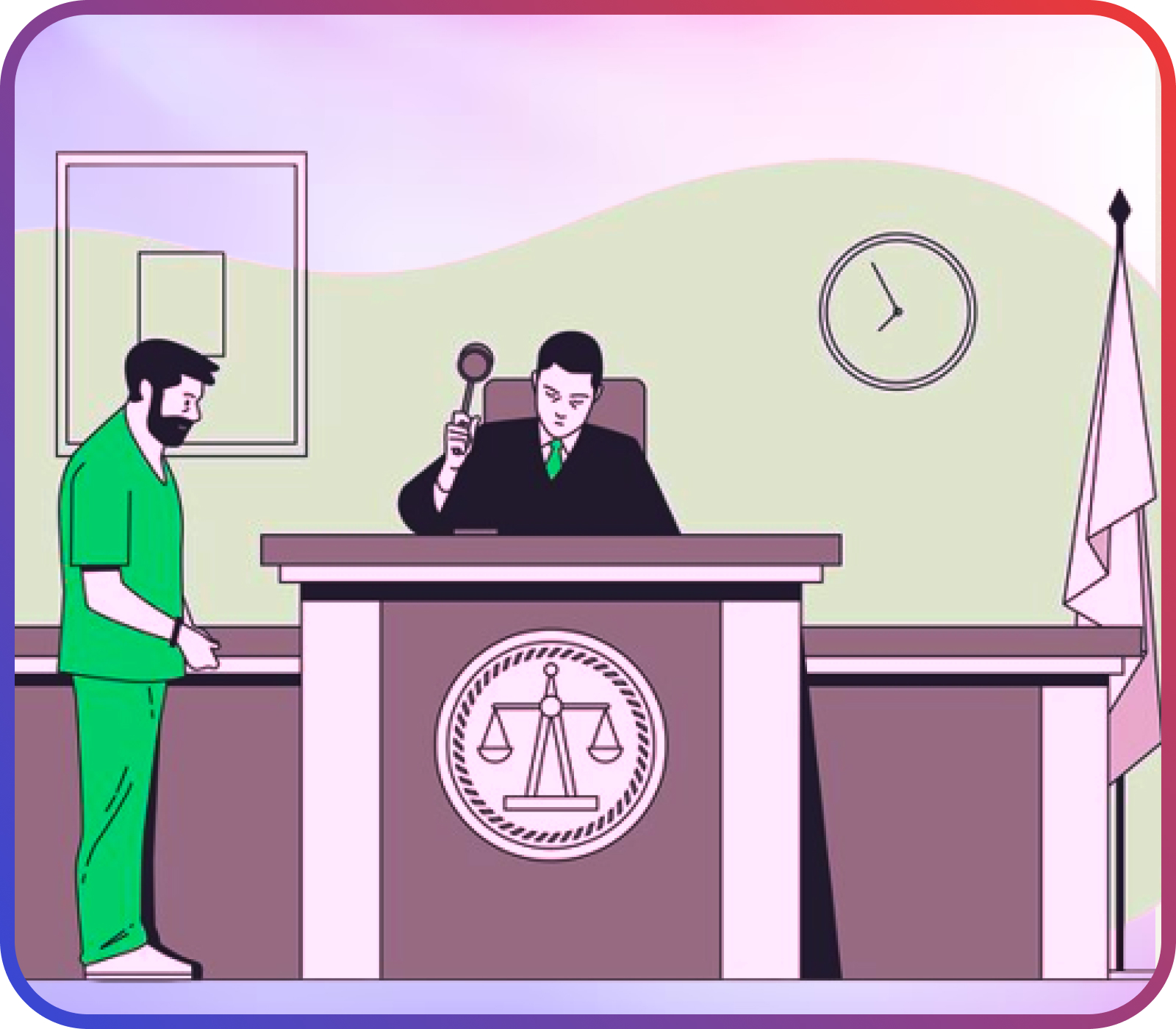
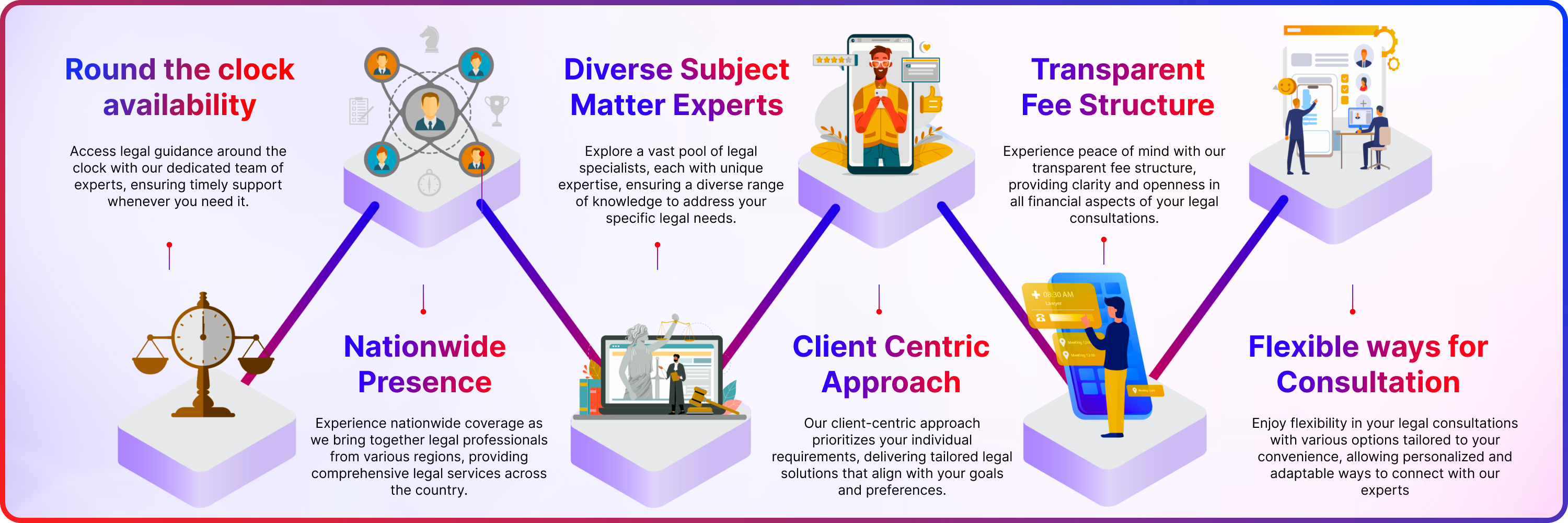
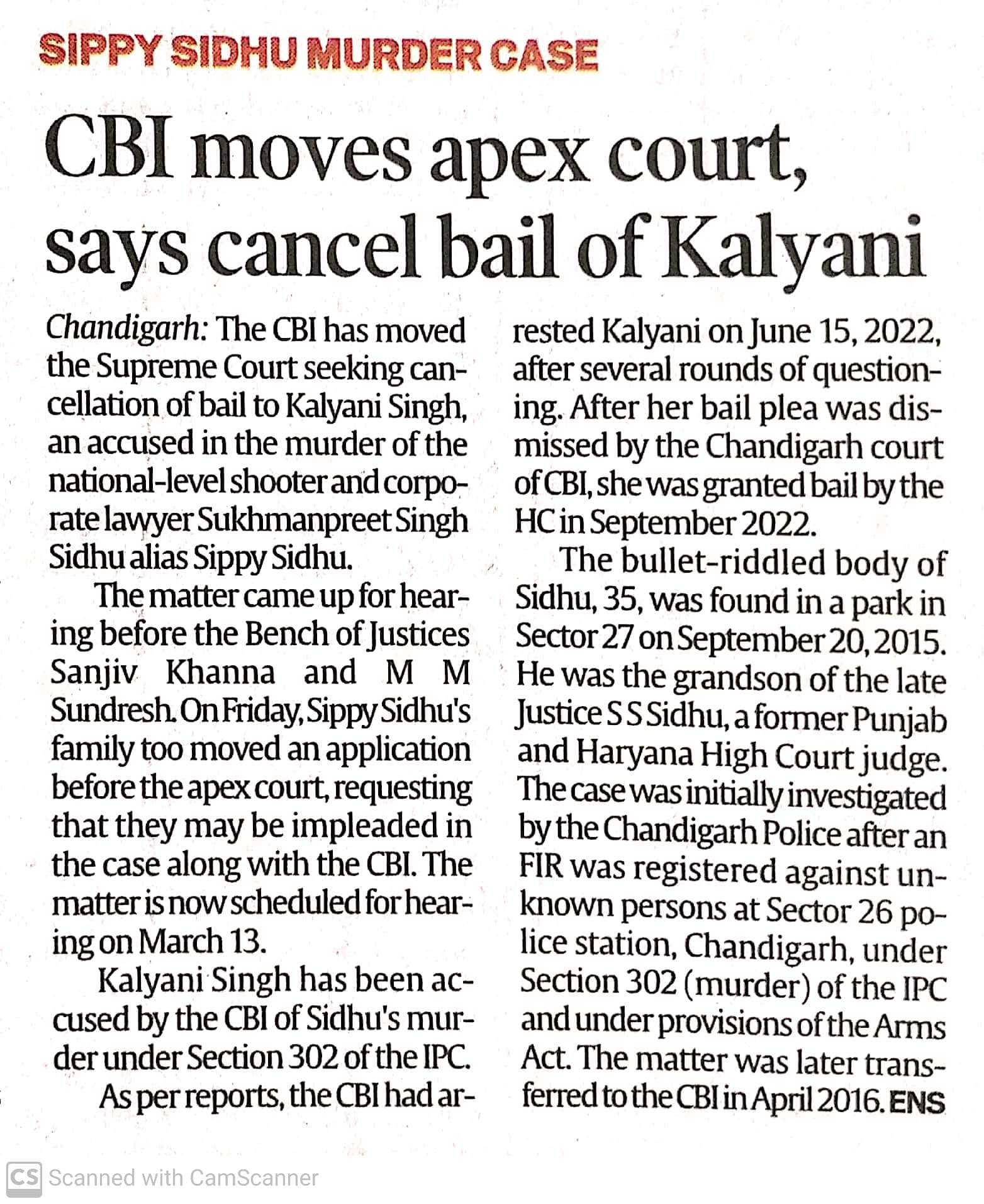
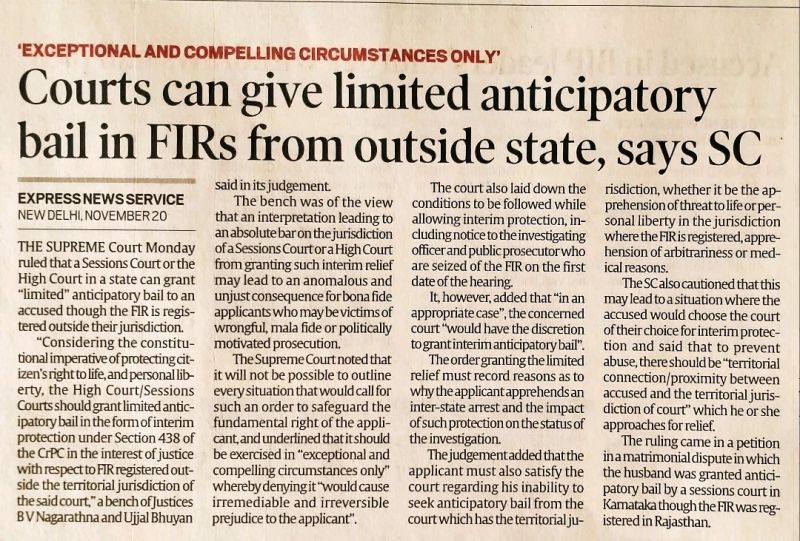
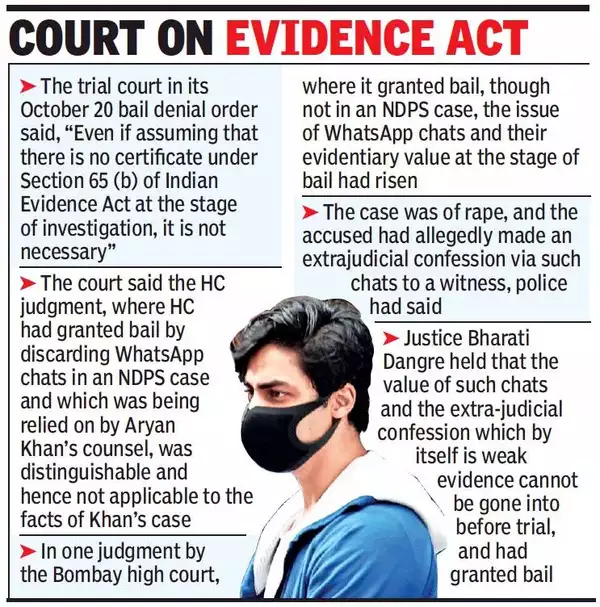

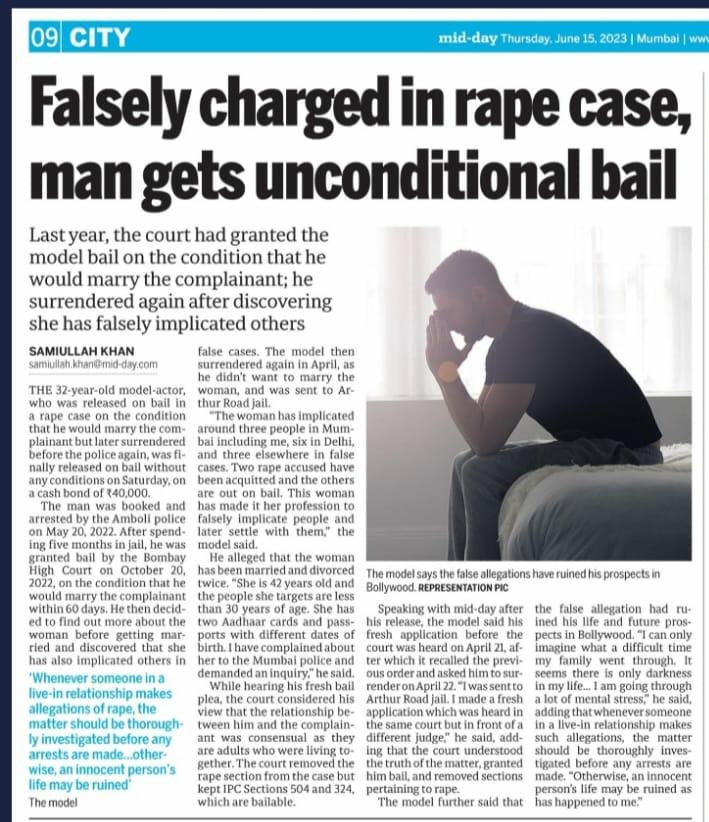

Take a look at the glowing reviews and success stories from some of our happy customers to see how (CompanyName) can help your business achieve its goals.